#jokes about what stereotypical white suburban Americans are like were not in fact jokes and were actually accurate
Note
🔥disney
I feel like at this point both hating and loving Disney are pretty popular opinions, so I guess the only thing I can say is that I don't get the whole deal with Disney world as like thee American childhood experience? Idk if it's just an "I'm first gen and grew up in an immigrant community" thing but the idea that you would go to Disney world as a family (or ever) was like. not even an inkling of a thought. I honestly don't even see the appeal really, like there are way cheaper ways to get on a rollercoaster, and none of the Disney films were particularly formative to my childhood, so I don't even get why people would want to meet adults dressed as them if you're older than like 5. It's wild to me that this is a real thing real human beings do and that it's considered normal or common. This isn't like a shaming people thing, I just really don't get it.
#imagine my genuine shock at finding out about Disney adults#its actually kind of wild to experience culture shock as a young adult for a country you live in#like the first boyfriend i ever had was a very stereotypically suburban white boy and it was a real mindfuck to realize that all those#jokes about what stereotypical white suburban Americans are like were not in fact jokes and were actually accurate#like i really hadn't realized how nonstandard my experience was which was really hard to process when the culture shock was coming from#someone who for all intents and purposes was in my community#so bizarre#college was kinda like that too but that relationship and interacting with his family kinda eased me into it#like i hadn't realized that on some level i just kinda thought most Americans were some flavor of immigrant until it came up in#conversations with university friends and classmates that my parents were both immigrants and they were like 'oh thats so cool!' instead of#like 'oh same'#this got really rambly and off topic but here it is#asks#also what is the difference between disney land and disney world????
9 notes
·
View notes
Note
I dont even think ben millers tweet was wrong or misogynistic. Do you really think that most suburbanites were really on the front lines helping these gay men instead of treating them like pariahs? Theres the habit of ppl lazily slapping white onto their misogynistic jokes and then theres them pointing out intersections of race and class that did have a hand in the way some ppl were affected and viewed the aids epidemic. Most of the white women that helped them were working class and queer, not straight suburbanites due to the fact that what attracted a lot of people to suburbia and still does is that they get to live in homogeneous communities free of minorities.
I understand what you’re saying here, and yet, I still feel that Ben Miller’s tweet was fundamentally misogynist. In fact, I feel that the original tweet IS an example of slapping “white” before “women” to cloak a disparaging remark about women in some kind of acceptable veneer for the wider online public. I do not think that the tweet offers any real substantive insight into the horrendous treatment gay men were subjected to by the American public, including both men and women, during the 1980s and ‘90s. The tweet is purely speculative, based on the imaginary scenario of suburban white women having access to Twitter during the AIDS epidemic. And for what reason? What value does this tweet have in enlightening anyone about LGBTQ+ history? No one had Twitter in the late 1980s because it did not exist, and there is no world in which that fact changes. So what can be the point of a white MAN specifically tweeting about the implied cruelty and heartlessness of white WOMEN… in a completely imagined scenario? Is this tweet supposed to educate? To me, the obvious purpose of this snide tweet - beyond collecting likes and retweets and general positive internet attention - is to incite derision of women for something that they can’t control because THE TWEET IS ENTIRELY SPECULATIVE.
I find it rich that not only is a white man tweeting about the supposedly unique awfulness of white women, but in so many responses to my Tumblr post on the subject, people have continued to reply with the most sexist stereotypes in mind. A man describes someone as a “white suburban woman”, and suddenly, people are frothing at the mouth, conjuring up Nancy Reagan and Anita Bryant. Ben Miller did not specify “STRAIGHT white suburban women”, nor did he say anything about these women being cisgendered. There is an implication in the phrase “white suburban women” that relies entirely on sexist stereotypes, so much so that people reblogging my post with the most inane and reaching comments have filled in the gaps in their heads to conjure up the most deplorable “Karens” they can imagine. (No matter that Karen is a sexist and ageist term, mind you.)
It’s undeniable that many suburban white women were horrible to gay men during the AIDS epidemic. I am in no way refuting that. But you know who were also awful to gay men? Suburban white men! And you know what group rallied behind many gay men during the AIDS epidemic? LESBIANS, many of whom could be counted as suburban white women! People seem to so quickly forget about the existence and history of lesbians, and that speaks volumes to me. Ben Miller tweeted about “suburban white women”, and suddenly, the potential queerness of these women disappears!
I have people replying to my post with comments about mothers throwing their young gay sons out of their homes as proof of the evil and reactionary ways of suburban white women. And even though that scenario has undoubtedly occurred in too many homes throughout the years, is there anything uniquely female about that action? Where are the fathers in this scenario, and why are they not being held responsible for their actions against their gay sons?
Women are consistently held to a higher moral standard than men, and so many of the responses I’ve gotten to my post only reinforce that.
#vomitago#ask#asks#i have so many thoughts in response to this but this is all i can articulate right now
4 notes
·
View notes
Text
Vintage Shows to Watch While You Wait for the Next Episode of WandaVision - The 50s
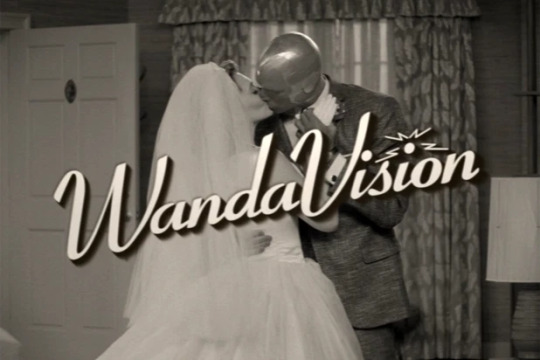
So the first three episodes of Wandavision have dropped onto Disney Plus and like me you’re probably already obsessing over it. Also like me you’re probably jonesing for another fix while waiting for more as the episodes only come out once a week.
But never fear, we literally have decades of cheesy comedy sitcoms to sift through to keep us entertained during quarantine. Along with the occasional action and/or horror stuff if you’re so inclined. So if you’re trying to decide where to start I’ll be making short lists for each decade that coincides with each episode.
1. I Love Lucy (1951- 1957)

The granddaddy of all American television sitcoms staring the first lady of comedy herself, Lucille Ball. While not the first sitcom to air, tv had been kicking around since the late 40s, this show did pave the way for many technical innovations for the new medium both on and behind the scenes. As such Elisabeth Olsen cited Miss Ball’s work as one of her inspirations for her role as Wanda in the series, as do many a woman entering into the comedic field.
Also the show is just flat out funny. One of those rare 50s sitcoms that manages to overcome some of it’s more dated aspects through shear force of personality and peak comedic screwball antics. The only downside is you have to have Hulu to watch it as the copywrite is tightly controlled even to this day.
2. Amos ‘n Andy (1951-1953)

The 1950s television landscape was overwhelemingly white. It’s no secret that POC had a hard time finding work in the field of entertainment let alone be the stars of the show. Amos ‘n Andy, a spin off of the earlier same titled radio show, was one of, if not the first black led shows on television and so deserves a mention just for that alone.
Now I will not act as if this show is perfect or ahead of it’s time. The series was controversial even during its day for is depictions of racial stereotypes. Eventually the series was canceled because of protests from the NAACP despite being very popular in the ratings. However I’m a full believer that history should be observed and talked about in order to progress further so check out an episode or two on youtube and decide for yourself if it’s worth remembering or not.
3. The Adventures of Superman (1952 - 1958)
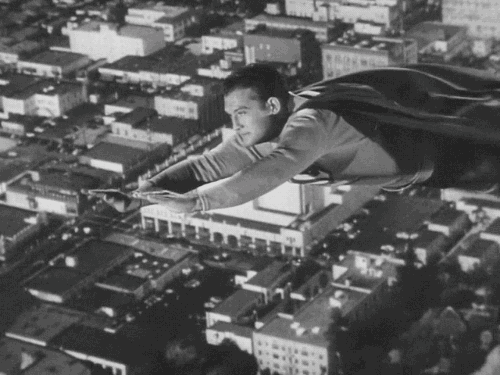
Ok, not a sitcom, but as we all know, Wandavision isn’t just a sitcom it’s also a superhero show and this is one of the first tv series in this genre. It and the Fleischer Superman cartoons from the previous decade helped to make the juggernaut industry that we know today.
Plus Superman did an official crossover with I Love Lucy, seriously.

4. The Adventures of Ozzie and Harriet (1952 - 1966)
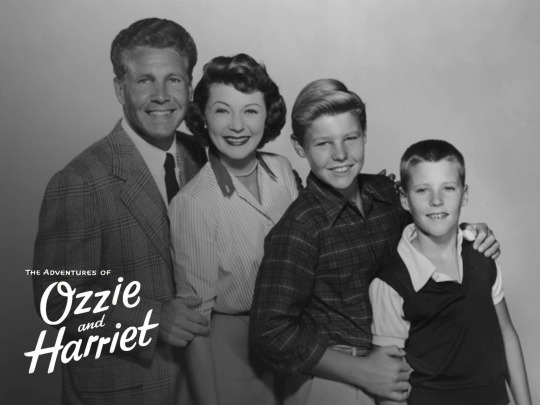
Hardly anyone talks about it today, but Ozzie and Harriet is the longest running sitcom to date. It's Always Sunny in Philadelphia being the only other show threating to up seat it come next year. However the two sitcoms couldn’t be any more different.
The series stared the real life Nelson family who had got their start in radio as comedians and singers who then crossed over into tv. While the show was completely scripted it tried to hew as close to real life as possible, kicking off American’s obsession with platonic voyeurism. Much in the way Wandavision has the meta storyline of being watch in their own home.
5. Father Knows Best (1954 - 1960)
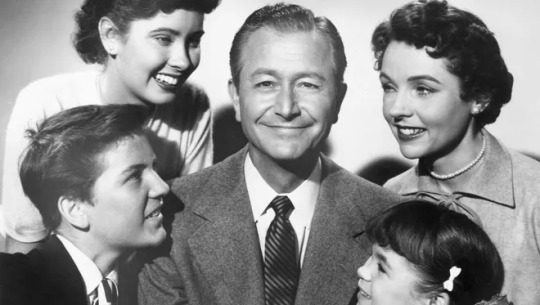
Another radio to television entry here, however the series drastically changed the main character during the transition. During the 40s radio sitcoms were very biting and sarcastic, often either going the complete surreal screwball route or were satires of the day. This fell out of favor as tv became more dominated by commercials and advertisers feared offending their potential costumers. So things were greatly toned down as the decade progressed.
Therefore when Father Knows Best hit the small screen gone was the rude and domineering dad and in his place we got the very model tv father; affable, gentle, loving, devoted, and very congenial. All traits we love to see in Vision some six decades later.
6. The Honeymooners (1955 - 1956)

I physically can not make a recommendation list of 50s sitcoms and not mention The Hoonymooners. I just can’t. It’s one of the greatest sitcoms ever made and hugely influential. So much so that The Flintstones ripped off the series whole sale to the point that Jackie Gleason threatened to sue Hanna-Barbera. However there’s little such influence in Wandvision.
See what made The Honeymooners stand out at the time and what gave it such longevity is the fact that the main characters were poor. They lived in a cramped and over crowded sparsely furnitured one bedroom apartment in Brooklyn. They owed bills, they dressed plainly, they worked long hours at low paying jobs, and they were often dirty from said work.
Much like how Wandavision will pull back the curtain a little to see the reality hiding underneath their suburban utopia, so too did The Honeymooners defy the the ‘perfect American dream’ that was soled on tv during the 50s to show us the trauma of poverty and the only thing that you can do when you find yourself trapped within that reality, laugh.
7. Leave it to Beaver (1957 - 1963)
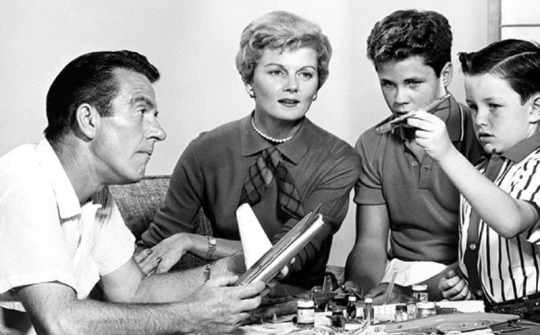
You can not get any more quintessentially 50s than Leave it to Beaver. The series has become synonymous with the decade and it’s take on the ideal American family life to the point where it’s become a punchline of numerus jokes criticizing the values and attitudes of the era.
Does it really deserve such mockery? Who knows. I think one needs to watch it for themselves to decide. However it slots right into the aesthetic that the first episode of Wandavision is trying to recreate and it must have been popular for a reason, right?
8. The Many Loves of Dobie Gillis (1959 - 1963)

We featured wholesome family sitcoms and screwball comedies with married folks but we haven’t covered any surrealist humor yet, and Wandavision is seeped into that sort of stuff. That’s because there really isn’t a lot of fantasy in most 50s sitcoms. So while the trappings for episode one of Wandavision is very 50s the effects and premise is more 1960s.
That’s where Dobie Gillis comes into play. Like Wandavision, The Many Loves of Dobie Gillis is based off a comic book, or comic strip rather. However that comic was very down to earth and tame compared to the tv show. More fondly remembered as the inspiration for Scooby Doo a decade later, Dobie Gillis quickly transformed from a typical coming of age show about teenagers to a surreal, sarcastic, tongue in cheek comedy, complete with get rich quick schemes, spys, bongos, and a giant chicken.
9. Bonanza (1959 - 1973)

Yeah, I know all of y’all are judging me right now. “A western in a sitcom/sic-fi list? What are you thinking?” Well one really can’t talk about 50s television and not mention westerns of some sort. They permeated all mediums and dominated the cultural air waves. And Bonanza is far more than just a western.
Bonanza is literally every thing. It’s every genre at once; western, historical drama, sitcom, action adventure, satire, crime drama, soap opera ,and yes even the occasional foray into science fiction, albeit with a more Jules Vern take than a typical spaceman theming.
If Wandavision is a melding pot of seemingly disconnected genres then it’s because Bonanza paved the way with it’s similar breakage of formula.
10 The Twilight Zone (1959 to 1964)

Yeah, you probably knew this was coming. When not being a homage to sitcoms Wandavision is a downright horror movie, but not one with gore and mindless monsters. Rather the show evokes old school surrealist horror, like that employed in the famous (or infamous) Twilight Zone.
What you probably didn’t know is that we have the I Love Lucy show to thank for it. See Lucille Ball and her then husband Desi Arnaz had created their own production company in order to make I Love Lucy. This production company, Desilu Productions, is responsible for picking up Rod Sterling’s pilot and producing The Twilight Zone.
Runner Ups
Good shows that have little to do with Wandavision but are good anyways.
What’s My Line (1950 - 1967)
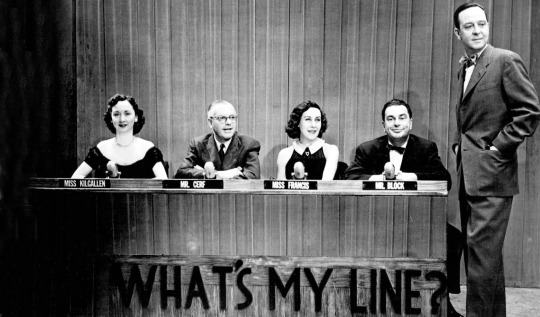
Just a really fun game show. Stars of the day would sometimes appear on it including many of the sitcom comedians listed above
Have Gun - Will Travel (1957 - 1963)
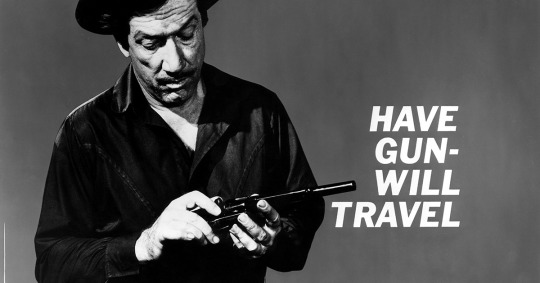
One of the very few pure westerns that I can tolerate. The lead actually cares about people and justice and will stand up to bigots.
Dennis the Menace (1959 - 1963)
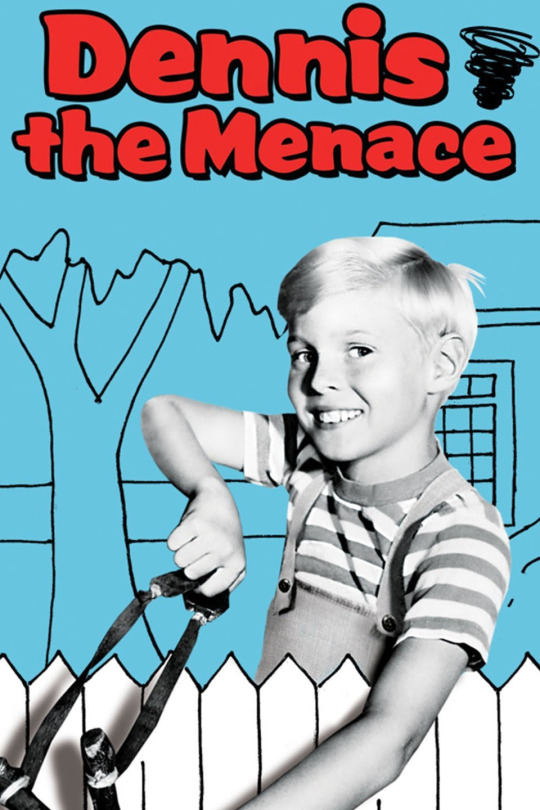
While I have fond memories of the 90s film, I thought it was a tad redundant to put on the list when there’s already Leave it to Beaver.
So there’s the 50s list. On Wednesday I’ll post a list for the 60s and cover some of the more obvious stuff Wandavision was paying homage to.
32 notes
·
View notes
Text
Diverse Perspectives | Discussion 3
I sent some questions to @jasperwhitcock for her perspective as a POC woman and daughter of an immigrant.
[ It is required to participate and watch/read these discussions, in order to follow me. Participate or get tf out. We aren’t performative in my lil’ area on Tumblr.
This discussion isn’t representative of an entire population or meant to be super professional. It’s to share different perspectives and also is an opportunity for me to practice what I preach: intersectionality. If you’d like to participate in this series please send me a pm or an ask and I’ll get back to you ASAP. We can do a written, audio, or video interview.]
As a mixed person, do you feel isolated from your community?
J: If you mean community as in the community I currently live in, I’m fortunate enough to live in a very diverse place. Surrounding the city of Houston, there’s a lot of prejudice integrated into a lot of the suburban neighborhoods, but in terms of the city itself, I think the POC communities really uplift and support each other. I’m a concert photographer when there’s not a pandemic, and I’ve always appreciated the way latinos and black artists are respected in the indie community. Houston’s a very rap/hip hop/R&B city, so black artists are especially celebrated. There’s also great latinx bands that I know, latinx venue owners/employees, and latinx brands connected to the indie community. We’re very well represented in this area.
If you mean community as in the latinx community, I wouldn’t say isolated, but depending on the day, I might say that I can feel distanced at times. This isn’t particularly due to the latinx community itself, so much as it may be a distance that I create in my head. As a mixed person, I think there are times where you can feel confused on where you belong. I’ve brought up the quote before from the Selena movie, where Selena’s father Abraham is speaking on the potential difficulty of Selena being accepted in Mexico because of the fact she is Mexican American: “We have to be more Mexican than the Mexicans and more American than the Americans, both at the same time! It's exhausting!” It can be difficult at times to navigate your sense of belonging when you are in between two cultures because you want to recognize that you may have privileges someone of full Mexican descent may not have, but at the same time, your life is still very much defined by being Mexican and having Mexican blood while living in America too. You’re definitely not absolved from having latin experiences. Latina stand up comedian Anjelah Johnson made a joke in her stand up about there being a Latinx hierarchy. She said that Spanish speaking latinos are better than the rest of us who are not fluent in Spanish (such as herself), and it was funny because sometimes you do feel that that can be true. My tías will always ask me why I’m not fluent in Spanish, and my mom will be like “yeah, why don’t you?” and I’m always like… because y’all didn’t teach me! My parents speak Spanish to each other at home. My father is not only fluent in Spanish, but his Spanish is oftentimes superior to a lot of Spanish speakers according to my mom and my tíos. He used to teach English in Mexico, so there is no reason that my sister and I shouldn’t have been perfectly bilingual. The reason they didn’t teach us as children is because they didn’t want us to be speaking Spanglish. (Spoiler: it happened anyways). Around white people, I definitely feel that I am not a white person. I feel very much latina in a group of white people. But then around latin people, I sometimes feel white enough to feel a sense of shyness. I definitely feel more at home with latinx people, but overall in both groups, I definitely feel that I am mixed.
It doesn’t happen often, because I think although the majority of latinx people have pride in their background, the hyperawareness of our identities right now is relatively new, but there have been instances of latinx gatekeeping the latin identity. Growing up, I didn’t think about what I was labelled as or think about how my family structure is different to other families. I didn’t consider how in some areas, it is an abnormality to have an immigrant parent or a parent with an accent. I definitely noticed that my family was different, but I didn’t understand why until much later. My mom, her sisters and brothers, and my primos… They don’t live their lives with the awareness of being defined as Mexican immigrants. Of course, they again have pride in where they came from. They live as Mexicans and engage in Mexican culture, but overall, the way the youth today has really grasped onto the labelling of our identity is kind of a new thing. There are some young latinx people who do try to quantify and measure whether or not your experience is valid. I know it comes from a place of protectiveness of their own experience, but it’s ridiculous to gate keep because something that really characterizes latin culture is our warmth, our sense of family, our willingness to embrace other people as part of that. If you’re of latin american descent, you have a place in the latinx community.
Since your parents don’t have college degrees, do you believe college is important and/or necessary?
J: I think it depends! I think a lot of immigrant parents really push for their children to get a college education because they see that as opportunity, particularly when they did not earn college degrees themselves. I think college can be important depending on what you want to accomplish, but I also think it’s not completely necessary. For my career path as a photographer/videographer, I chose not to do college. I do think I would have enjoyed college because I like learning, but because it was something unnecessary for my job, I couldn’t justify the time invested or putting my parents into a difficult financial situation. Especially because my college education would have overlapped with my sister, and I saw how difficult it was to juggle handling my sister’s student loans. For my sister’s career path (she is studying to be a nutritionist/therapist to help teenagers with eating disorders), college was necessary.
Your Mom has been stuck in the US, unable to return to Mexico for awhile, has your Mom’s experience with immigration changed your views in some way?
J: As context, my father lived in Mexico for a decade and married my mom in Mexicali. They hadn’t planned to move to the United States, but when they came to the US to marry here so that she could have citizenship and be able to visit his family, there were complications that made it to where she couldn’t leave the country. Luckily, the time she was unexpectedly stuck in the United States didn’t last super long! Long enough to become comfortable enough to decide to settle down in California, but we have been able to travel to Mexico often. I think it really highlights how unnecessarily complicated a lot of the processes regarding immigration are. The people in the country who are very malicious about undocumented immigrants love to jump to saying, “well, why can’t they just become an American citizen?” when the reality is that every process in place has a lot of complications. Not everyone has access to the resources to be able to make these transitions happen smoothly. Also, the time it takes to acquire your visa is not an overnight thing. People severely underestimate the difficulty involved.
What do you think about the “hard-working immigrant” stereotype?
J: I hate the idea that immigrants work hard because they’re low-skilled, but I do love that there is a lot of pride in how motivated immigrants are. It’s always been a ridiculous claim that immigrants are taking American jobs. Immigrants work the jobs that the majority of Americans have no interest in doing, especially the people that make this complaint. For a country that prides itself on working to make your dreams come true, Americans neglect to recognize that immigrants have a drive that most Americans don’t have.
Which parent do you feel more connected to? Your Mother who’s an immigrant or your Father who was born in America?
J: I really do feel that I am a coalescence of both my parents, so I think I feel equally connected to each of them. I feel a very strong emotional connection and concern for my dad because his mental health suffers a lot. His mother had bipolar depression at a time where mental health was even more stigmatized, and she endured a lot of ridiculous, merciless treatments that are no longer utilized today. When he was nine years old, his mom committed suicide, and this was an event that really defined his life forever. I think that kind of heaviness passes down through your family. When my dad is not doing well, I feel really imbalanced and emotionally impacted even if I’m not home to witness it. It’s kind of like that idea of an invisible string tethering you to someone, and it’s a weight that I carry always. However, overall, he’s a very positive person. When he is going through his kind of manic highs, he’s a lot more of what I recognize of who my dad is. He’s creative, a musician, and deeply caring for other people. His mother’s death has empowered him to really try to make a difference and “paint a picture of a better tomorrow.” I’m a lot like my dad in personality, but in disposition, I’m so much like my mom. She’s tough and outspoken at home, but in public, it takes awhile for her to open up. My mom’s very selfless, kind, and very much shy and quiet. She definitely exemplifies a lot of the sacrifice that you see many immigrants make. I do like both sides of my family, but I definitely feel more at home with the Mexican side. My dad’s side is loud, vivacious, and very much funny, but I feel extremely shy around them. My sister and I have always felt a tiny bit left out. I think they’d be hurt to know we feel this way, but I definitely don’t think they do anything to intentionally enforce this division. But I think it developed because there is a bit of a cultural disconnect between my aunts and my mom. It’s also very interesting to me that when they first met my mom, my mom didn’t speak any English. It’s fascinating to consider how it might change your perception of someone to go from not being able to communicate with them to watching them learn your language. My mom enjoys the time that we do spend with my dad’s family, but she’s kind of the odd one out in that her humor isn’t the same and her experiences are so different. I think that my dad’s sister and brother’s families were able to connect in a stronger way, so sometimes my mom, my sister, and I feel just a little isolated. In those moments, I feel the most aware of my Mexican background. With my mom’s side of the family, it’s a lot more comfortable. My dad’s able to develop his humor in a way that translates well into Spanish, so he fits in very easily.
You’ve lived in a “Blue/more liberal” state and a “Red/more conservative” state, which state has affected you more?
J: Definitely the red state. Seeing how intensely and ridiculously conservative some southern people are has really radicalized me in a way. I feel overwhelmingly liberal because there’s a defensiveness that develops when you’re in a space like this where you have this intense disbelief that people hold the ideas that they do. Especially because in Texas, black and latinx culture is a major contributor to southern culture. There’s a lot to be said about how black culture shapes the south, but because I’m latina, I’m focusing on latinx culture with this question. White conservatives want our food, they want our work, but they don’t want us. I don’t understand how anyone can be all #TacoTuesday one day, and then the next, be anti-immigrant. If you really want Mexicans out of your country, then maybe you should start living your life without any Mexican influence. Stop eating Mexican food. Clean your own pool and mow your own lawn. It’s ignorant to speak down on immigrants when their life would be so altered to be rid of immigrants. They rely on immigrants. Their lives are shaped by immigrants and built by immigrants.
(I had to chime in here: )
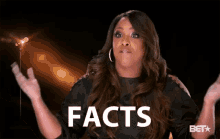
Are you proud of your parents?
J: Absolutely. As a young teenager, I had a lot of problems with my parents. I think I still have issues I’m working through as a result, but now that I’m older, I really do feel a deep sense of admiration and respect for them. Growing up really makes you view your parents differently and understand them as people rather than just as parents. I held onto a lot of anger and resentment, but I’ve come to truly see how they really did do their best. They’ve worked very hard, and I think not having everything that kids around me did really helped me grow into a more grateful person.
Have you faced discrimination for your race?
J: Of course, but in all honesty, it really rolls off my back. I think hate that is personally directed at me doesn’t bother me, but the discrimination that does affect me is anything directed or related to my mom. I remember my parents had a customer who made a really ugly complaint to my father about my mom’s english. My mom essentially handles most of the written communication with their business, and she still speaks and types in broken english often. The majority of my parents’ clients are latinx, so it’s typically not an issue, but it’s unbelievably offensive and ridiculous the assumptions people will make about your intelligence based on your english. The customer had no idea that the woman she’d been communicating with was my father’s wife rather than just an employee. It’s really sad how someone can see someone as unworthy of respect until they’re tied to a white man, and then they’re suddenly apologetic. This is another extremely mild example, but I’ll get a few laughs when I mispronounce something or don’t know how to say certain words. People always find it funny as though it’s embarrassing –– and it definitely can be –– but people forget I learned english from a woman who speaks two languages.
As the child of an immigrant, how has the anti immigrant talking point affected your mental health?
J: I think the toll the anti-immigrant bias in the United States has on immigrant children is a relevant conversation to have, but I think I’m very lucky in that I feel very tough in the face of that ignorance (which is not to say anyone whose mental health suffers as a result is not tough!) If anything, I feel pity for the people who are so hateful that they see other human beings in such a derogatory and entitled way. Similar to what I said before, my outrage really comes from a place of defensiveness for others. The talking point doesn’t hurt me, but it hurts me that people can speak about my family and my community the way they do. It hurts me that there are other immigrant children who have to work as hard as their parents to make their sacrifices worth it, and people are so insensitive as to not respect that. I’m pretty strong, but it does break my heart when my people are disrespected. If someone were to say something to me, that’s fine, but if i saw someone mistreating a little mexican lady in the store… I may be 5’3 but that don’t mean I won’t come for your ass. Okay, in all honesty, I’m really not a violent person. I’m more of a rise above kind of person because the hate someone has in their heart is not worth our time, but some people do need a chancla thrown at them to learn some respect.
In your opinion, in what ways does the Latinx community need more support?
J: I think because the latinx community is so much so composed of hard workers, people really need to support latin businesses more. That’s a direct way to impact latin lives. There’s an abundance of latin small business owners in every category. So many white kids love going to Cozumel for Spring Break and love wearing sombreros on Cinco De Mayo, but then the rest of the year, they have no care or respect for the authentic culture. For every dollar a white man makes, hispanic women still make statistically less than white women, asian women, black women, and native women. We gotta back up these businesses. Choose local taco shops or restaurants over chains. Choose online shops and Mexican boutiques over fast fashion. And this applies to everybody. We can always support black business or asian businesses over large competitors. It really does make an impact. I also think a lot of latinx children need access to better mental health resources. I’m lucky in that because my father struggles with mental health issues, mental health in my family wasn’t exactly a taboo, but in a lot of latin families, mental health is something that is hard for older parents to validate. Latin children need those resources. A simple google search of “latin mental health resources,” bring up a bunch of organizations that you can support. I think every POC community needs to be boosted right now because although we’ve been under attack, conversations about minority communities are being had by white people right now. We have their attention, and we do need their support to enact change because they have the power as the oppressor. We need to be going to bat protecting black people right now because of the insane damage the community has been enduring at the hands of police, and we need to be protecting immigrant children from what’s happening to them at the border. I know the election is extremely controversial right now, but I would urge anyone who has the ability to vote to really consider the importance of doing so. People love to be cynical about how our votes don’t matter, and I understand that cynicism, but a lot of immigrants don’t have the luxury of voting when the results of the election will directly impact their lives. I hate that there is no option of a president that will perfectly support POC communities, but there are options whose party is far more aligned with supporting and protecting POC communities than Trump is. Trump spews hate and fuels racism and prejudice. He calls Mexicans rapists and black protestors thugs. He encourages the blaming of the coronavirus on the asians in our country. He does not need any help winning the election. We need to get this hateful man out, and I strongly encourage anyone who can vote to do so.
--
Let’s have a discussion! Did you learn anything new from this conversation?
Let me know here.
-
To close out each post, I’d like to write a lil’ paragraph about the person I talk with:
I’m so lucky to have you as a friend darling. You always bring a smile to my face when we chat. You’re funny and so smart. I admire you deeply for being able to share your perspective in a clear way. Thank you for putting up with my 2 am messages lol 🖤🖤🖤🖤Your continued support makes me feel safe and very, very, loved. I hope I encourage the same feeling with you.
You’re the best babe,
-Faithxx
59 notes
·
View notes
Text
The Good Place (2016)
I chose to start watching this only because I was at a very low point in my life in terms of facing a dearth of TV-derived entertainment, having just finished Virgin River (2019) and Sweet Magnolias (2020). Both Virgin and Sweet are not what you'd call .. uh... productions of any real calibre or value or perhaps worth at all, like you can be certain that no niches were filled when they were realsed into the Netflix ether... But they also happen to be epic masterpieces by sheer fact of how banal and predictable and PG and saccharine and inconsequential they are, the best of the suburban vanilla Hallmark Movie genre, and basically they rock af ok?? and so when I finished both first seasons of the two series I was left empty and thirsty. And it was in this lostness that I turned to The Good Place, thinking it would be as enriching in it's simplicity, as palatable in it's shallow distraction, qualities I generally look for in the fodder to keep my eyes engaged on something that isn't the clock when I do my daily evening indoor cardio.
So maybe I should first set the stage by establishing that I simply fucking hated this series lol. I couldn't get past episode 12 (I know, this makes it sound like i already gave it way more time than it deserved, which is the truth) of the first season, because once I decided I'd had enough, it was really fucking enough and I couldn't give it one more second.
As always, here's my shoddily written premise of the series; I don't want to put much effort into capturing it's essence well because idgaf about this dumb show seriously fucking hate it lol but anyway: Eleanor (Kristen Bell) dies on earth, and goes to 'The Good Place', where all souls who were much more good than bad while living on earth go to upon their death, as opposed to The Bad Place, where the bad people go. There’s some mathematical calculation for this heaven and hell allocation basically. So the good place (i can't be bothered to capitalize it every time i type it anymore lol sorry), is run by a head architect who has designed and is in charge of the neighbourhood our characters live in, and he has a female robot assistant, Janet, who is the omnipotent, omnipresent and omniscient right-hand lady who can also be called up by any good place resident who has any question for her, anytime. Anyway Eleanor, after dying on earth, was actually sent to the good place by accident, because she was actually a completely irredeemable asshole but due to some dumb boring never-happened-before error, she was sent to the good place instead of the bad place where she actually was meant to end up. Here she makes a small group of friends, some to whom she is eventually honest about the fact that she does not actually belong in the good place, and it is because of this incorrect placement that the good place is crumbling and its inner workings are going haywire etc and everyone suffers from the consequences. So blah blah blah soon we find out that it is not just her, but also some other guy who is here by mistake, and so blah blah blah etc yupp
So here are the things that suck about this show:
So there’s this other guy who also doesn't belong in the good place and who was also sent there by accident, his name is Jason okay but umm it's complicated because the person he was mistaken as (and the actual 'good person' who was intended to be sent to the good place while Jason was meant to be directed to the bad place) is named Jian Yu, a Taiwanese monk. Jason however is a Filipino-American from Florida and I guess his character is meant to be a stereotypical 'White trash' character, but it's meant to be funny or some shit so we aren't meant to be deeply affected by fact that his life was fucking sad, like how his small-town dreams were meant to be comedic relief for us to laugh at how pathetic he is when ... i dunno, I feel very uncomfortable making a joke out of real-life situations that umm aren't funny at all idk whatever... Oh also the weird (dumb/shitty/lame/thoughtless) thing about the show is how even once it is revealed that Jason is in fact his Jason-y, oblivious, infantile, one-dimensionally-tropey self, the characters who know the truth still continue to call him Jianyu throughout...? But like.... he's not Jianyu lol?
So anyway, Jason is characterised quite disturbingly to be honest as an extremely immature dudebro, to the extent that one could call him child-like. In his unhappiness at being stuck in this weird world where he can't be himself and has to pretend to be Jianyu most of the time (which involves being a complete ascetic as well as silent because the real Jianyu had apparently taken a lifelong oath of silence), Jason latches on to Janet the robot assistant. He says she is the only one who has been kind to him, etc etc etc, and begins ummmm, falling in love with her. But because he's painted as a literal baby with absolutely no rational or critical thinking skills, him falling in love with her is meant to be uhh earnest and sweet or at the very least inconsequential and jokey I guess? But like... this isn't funny...? Not when sex robots are a real thing and will probably lead to the abuse, violation, murder of millions of women in time to come because men will be so used to putting their penises into awfully, scarily 'life-like' dolls whose limbs have been programmed to move and who can even utter words of affirmation to their degenerate users that actual human females will no doubt bear the brunt of being expected to perform in life and in bed similarly to our robotic counterparts...? Yea so the good place disturbingly first makes us almost forced to feel some endearment toward Jason for finding a kindred "soul" in robot Janet, glad that he finally has "someone" to "talk to" (quotation marks cos once again she's a fucking robot), and it's all very "pure" and "wholesome" at first because again, he's portrayed as a fucking kid (one piece I read describes the character as "a sweet ding-dong human"). And then suddenly, about one or two episodes after they fall in love or whatever, Jason says:
You guys have fun. This is me and Janet's honeymoon, so we're gonna go try and figure out how to have sex.
Yeah umm so once again, in case any of you forgot, Janet's a fucking robot. If I use a scale of human consciousness out of 100 where a regular human's sense of self and awareness and independent thinking and authonomy and whatever else makes us human is at 100, Janet is probably at .... 10? at most? So yea.... i guess rape jokes are okay these days? I dunno? Literally how the fuck were there 3 entire seasons of this dumb show after this
Anyway when I attempted to put in *some* effort before I gave up, realising this show wasn't worth my precious weekend downtime, I googled Jason and Janet's relationship to see if there were any other similar voices of dissent but umm apparently, according to the headlines of articles, this is instead public opinion:
The Unlikely Romance of The Good Place’s Janet and Jason
Why Janet And Jason Are The Good Place's Ultimate Love Story, According To The Actors
How Janet and Jason broke the infinite love mold on The Good Place
From these disgusting articles, here are some choice quotes by the actors and crew involved themselves:
And the fact that this should not happen but it does makes it very special.
We think that their relationship is really sweet. There's something very innocent and real about their love even though that is insane
Yeah, I always talk about this whenever I get the question, “How does Janet and Jason work?” And my response is always — and I’ve thought about this a lot — Jason is slowly becoming a little bit more aware and intelligent. He’s evolving a little bit, and through Jason, Janet is able to become more emotionally intelligent. She’s feeling these things, whether it be good or bad, through Jason because that’s what Jason is. He’s all these different emotions that he can’t tame, and Janet’s learning that. They’re kind of evolving.
Okay so perhaps I should clarify that Janet the robot goes through a couple of 'deaths' in which she comes back as a rebooted version, and supposedly more 'human' each time. So yeah I guess it's okay to have sex with robots if they actually become 0.0000001% more human-like each time they come back to life though!!!!! Sorry for overreacting guys!!!!!
Seriously though how the fuck are they even using the word 'romance' in good conscience to describe the 'relationship'
Actually as I'm writing this I'm reminded of this video by Pop Culture Detective on youtube, titled "Abduction as Romance". Jonathan the host/video creator goes through various movies through history and from contemporary cinema of this unbelievably damaging and disturbing trope, where women are shown to eventually fall in love with men who have essentially, in some way or another, abducted them, annyway here it is if anyone's interested
youtube
I’m calling up this video because in the shows used as examples in Jonathan’s thesis, the female characters fall in love with the men just because the men happen to be the only choice they have. Okay I actually only managed to get through a quarter of the video because it was too disturbing and too awful to think about how frequently such plot points are used till today and how so much of the shitty love we see on screen is completely abusive in nature (he’s also made another video called Stalking for Love which I’m sure is as eye-opening, i haven’t watched it cos i don’t need to lol, i’m already woke thanks), but anyway the bit that I did manage to watch does remind me of this stupid love story from The Good Place that we’re supposed to be moved by. We’re seriously supposed to believe that Janet, through her reboots and whatever awakenings of consciousness she supposedly has, also has feelings for Jason just because he’s the only pathetic dumbass immature enough to think that he has feelings for her because she’s the only person who’s willing to listen and talk to him properly? When ummmm she’s only listening to you because she’s programmed to...?
Honestly I can't be bothered to talk about freaking Janet and Jason anymore
There are other things that suck about this dumb show
I don't know what kind of character development Eleanor (protagonist) goes through in the seasons that succeed that I shall never be audience to, but she remains unlikable in almost every way in season 1. This is even though the entire premise of the plot is that she learns to become a better person with each day, struggling to distance herself from her past (on earth) where she was every caricature of a selfish, cruel, demeaning, unlikable person ever. The few and short flashbacks we get to her earthly past are so annoyingly annoying that it made it almost impossible for me to continue to care for this charatcer her in her afterlife. I know, being in the profession that i am, i should have a great deal more empathy for her and where she's coming from (and i would if the show was not so fucking shitty), so i'm not hating on the fact that she was such a bad person, more so that the creators of the show did little to give us anything real to hold on to at all. Between boringly unreal dialogue, stilted acting typical of American sitcoms, overly defined character traits again typical of dated, unchallenging and unsophisticated American sitcoms, I honestly can't understand how on earth this is rated 97% on rotten tomatoes... I mean I guess if I actually read the reviews I'd understand but hehe I'm not about that open-minded, balanced POV narrative okie? :)
----------
Updates: Haha so ummm eventually I was too bored / curious so I decided to give this show like it’s fourth chance or something and eventually I ended up finishing the entire series and yes I cried as fuck and yes this series made me feel many feels and no I shall neither take back anything of what I said above nor clarify how or what made me change my opinion on it nor elaborate on why I ended up rather enjoying it :-) bye bye
0 notes
Note
"Although how fitting, that a figurehead handpicked from the same pool of digital wealth that brought ruin and misery to the poor and oppressed peoples of San Francisco" I'm not denying it but please explain to me what happened. Do you mean poor people in SanFran were priced out of their own neighborhoods?
Not deliberately, but tech people, the city councils and alot of the middle class who live in and around San Francisco all vote and self-identify with progressive or at least liberal parties.

Because they feel a sympathy for people of lower classes and diversity and vote accordingly, but frequently bemoan, disregard and play down the aggravation of and plight of people who’s cost of living and rent shoots up due to gentrification. And to get into gentrification: Gentrification is the sustained transformation of a typically lower class or minority community into a “trendy” or upscale one because more well off groups, like white americans or asian americans, move in without respect to the community, to take advantage of the land value. This has the effect of displacing the people who originally were there, usually living paycheque to paycheque.
For a historically invisible group of people to the wealthy liberals, this is greatly distressing, because it breaks up communities where they have traditionally found solace and belonging in the midst of a metropolitan area where they are othered by the (previously white majority) population around them.
For San Francisco, the historically working class, predominantly black neighbourhood of hunter’s point by the old shipyards, is now deep in the midst of redevelopment to cater to the more well off tech employees of San Francisco
Since 2000, the black population there has become a statistical minority as they find themselves evicted, often out of childhood homes, and thus forced to move elsewhere
youtube
Much of these people have moved elsewhere in the Bay Area, which has up until recently, been Oakland typically
Which is also undergoing a transformation of it’s own, much to the chagrin of the people of colour who live there, where their particular aggrievement is for a particular sort of people:
youtube
Often, this slow transformation is accompanied with a typically appalling liberal racist regard for this area they are coming in to.
While not in the Bay Area, you can find examples of this in similarly gentrifying Crown Heights, Brooklyn - where spillover from previously gentrified areas like Williamsburg is ongoing
There’s no better example of the attitude liberals have toward these communities they foray into, likening themselves as early settlers in a future chic area, than the recently opened summerhill restaurant:

The newest cocktail bar and “boozy sandwich shop” in Crown Heights hasn’t been around for long, but it’s already shaping up to be one of the most divisive businesses in New York City.
Summerhill, located at 673 Nostrand Avenue, opened in June, but yesterday, owners sent out a PR blast to editors at various New York publications, including Eater, highlighting elements of the restaurant that, to anyone familiar with the endless push-pull of neighborhood demographics in New York, read like a checklist of gentrification red flags and worst-practices. Update: Since this story was published, more information has come out. Click here for the latest.
Among other things, the press release advertised that Summerhill, run by a “reformed corporate tax attorney” from Toronto named Becca Brennan, was opened in “a long-vacant corner bodega (with a rumored backroom illegal gun shop to boot).” Alongside $12 cocktails and “cheekily wallpapered bathrooms,” the restaurant also seems to be selling a generous dose of self-mythologizing: “Yes, that bullet hole-ridden wall was originally there and, yes, we’re keeping it.”
That “bullet hole-ridden wall,” when fact-checked by Gothamist, turns out to likely just be cosmetic damage. “Just looking at the angle I don’t know if that is possible that that’s a bullet hole,” Brennan admitted to Gothamist. “We call it [a bullet hole-ridden wall] because if you look at the history, someone seriously said, ‘Isn’t that the place where we could buy guns?’
And then we were like, ‘okay.’” (The “history” she refers to is an anonymous comment left on a community website post about the building.) Brennan defended this fictionalized historical narrative as, like the bathroom wallpaper, “cheeky.”
The stretch of Nostrand Avenue between Eastern Parkway and Atlantic is one of the most rapidly changing commercial strips in Brooklyn, as encroaching gentrification motivates landlords in the majority-black neighborhood to raise rents. In recent years, dozens of restaurants, coffee shops, and bars oriented to the neighborhood’s young, affluent, primarily white newcomers have opened within a few blocks of Summerhill. While some of the new wave seek to incorporate aspects of the neighborhood’s cultural identity and West Indian roots, Summerhill seems to be the first to specifically emphasize Crown Heights’ history of violence and poverty as a thematic element.
Besides the fake bullet holes, the press release calls the business serving $12 cocktails (including one called #VanLife, hashtag and all) an “oasis” and the “most Instagrammable, ‘let’s just crush some watermelon cocktails’ hangout.” The restaurant’s website and social media accounts also prominently feature Forty Ounce Rosé, a high-low mashup of the trendy summer wine with the iconic malt liquor bottling style which has come under scrutiny for appearing to make a joke out of African-American cultural stereotypes. *
Look no further than the image of dining at a restaurant with the theme of being “authentically run down” where you can buy Rosé in malt liquor bottles with your #besties, to understand this liberal tone deafness


Establishments like Summerhill are essentially the tip of the spear of gentrification, because the people who start these establishments are keen on precipitating a “trendy” neighbourhood around their self-professed bold entrepreneurship. The appearance of establishments like Summerhill are regarded as a cancer by the communities that host them. Functionally, they pretty much are.
So what happens to these communities as they get displaced by gentrification?
Well, they leave the city and go into the suburbs, naturally, where the REAL conflict begins.
Returning to the bay area, The people who left Hunter’s Point for Oakland, subsequently leave for places like Antioch, which are predominantly white suburbs further out of the city:
According to census data, the majority of residents being pushed out of Oakland are staying in California.
KQED reporters Devin Katayama and Sandhya Dirks spent a year reporting on the outmigration of low-income residents and people of color from Oakland, San Francisco and Richmond to the surrounding suburbs.
“As we were reporting on Oakland we kept hearing, ‘Oh, they’re going out to Antioch,’ ‘He moved to Antioch,’ ‘She moved to Antioch,’ ” says Dirks. “So, we went to Antioch.”
The traditionally white working-class community about 45 miles east of San Francisco is undergoing a change that is often overlooked in reports about gentrification in the Bay Area.
Listen to the first episode of their project, American Suburb, which is Season 1 of KQED’s Q’ed Up podcast. Their work answers many more questions about the impacts of gentrification on Oakland and beyond.

[PODCAST LINK]
The podcast sums it up better than me, but I’ll summarize:
So imagine you are white and grew up in a suburb that has a more even split of Democrat and Republican voters (to give you a reference point of tolerance toward people of colour versus urban areas like San Francisco), then all of a sudden, cul de sac’s begin hosting more lower income black families, displaced from the city.
This is a shock to say the least, and for the black families moving it, it involves dealing with neighbourhood watches and police called in to stop by your house over calls from their white neighbours because “section 8″ people were having a “disturbance.” At first, it’s probably rad, moving out of the city into a nice cul de sac and going to a large, suburban california highschool like the ones you’d see in movies, but then one day someone gets shot at a movie theatre near the school and now there’s a curfew and police explicitly singling you out.
The prevailing opinion of the white population of Antioch, being that the black families, whether or not they actually are recipients of it, are being regarded as “section 8 people gaming the system” to take over their neighbourhoods. This isn’t aided at all by the rise of violent crime and gang violence that follows the often poorer newcomers from urban areas.
So TL;DR
Relatively wealthy liberals displace distinctly black or minority communities by “colonizing” their neighbourhoods, who are then forced to scatter to the winds and move to more hostile, mostly white suburbs, who in return feel the new comers are, at best, “disrespectful” to their own communities, by the crime that follows and inherent racism and misunderstandings of these surburban people and the police.
The cause and outcome of gentrification. I can’t stress the felt helplessness enough.
So imagine having someone who lives at the speartip of these tone deaf gentrifying factors that have ruined communities for alot of people in San Francisco, becoming president.
60 notes
·
View notes
Text
GET OUT! The Black Comedy
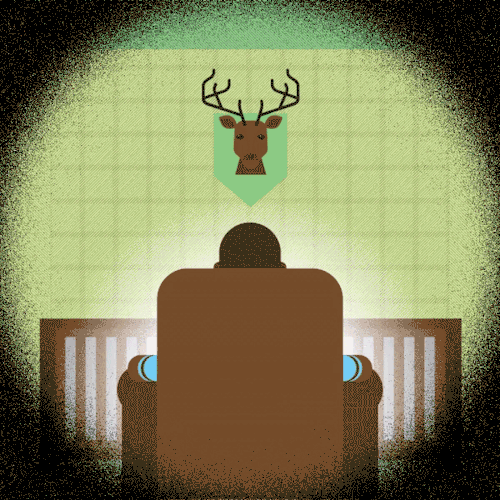
Sunday. Matinee. Jordan Peele’s Get Out receives %100 on Rotten Tomatoes. Call up the crew. My home girls slide thru. The downtown theater is sold out, Cherry creek has plenty of seats. No surprise there. Get Popcorn. Get Cozy. Get Scared. Get Out!
A whole can of black and white worms was opened up in Jordan Peele’s soon to be cult classic film Get Out. A psychological thriller that leaves one hinged horrifically balanced in what is suppose to be a suspension of reality but rather is an actual heightened extension of it. Don't worry I won't be spoiling much for you in this post, merely giving you my emotional reaction to such a ride...
We are thrown onto a cathartic balance beam bereft by a post traumatic state of reliving horrors from life on the silver screen. We make our way through the witty and blunt humor and cringe when we come to those perilous bridges constructed by race and ignorance that are all too familiar; but this is suppose to be funny right, ha ha haaaa.
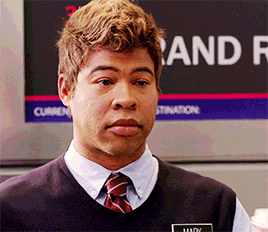
A black man in his early twenties, sporting a head wrap and army jacket sits in front of me and my peanut gallery of queens with his blonded white girl. I nudge my girlfriend and we both begin to crack up at what might be their last date.
Discomfort shifts back and forth in the seats as we merge into the muddy waters of Anywhere, America, a suburb that might host a mall with a theater like the one we are sitting in, as couples of all shades grasp and laugh, and are silent, we are methodically lowered into a 'sunken place' where all is happening to us and we can do nothing but watch.
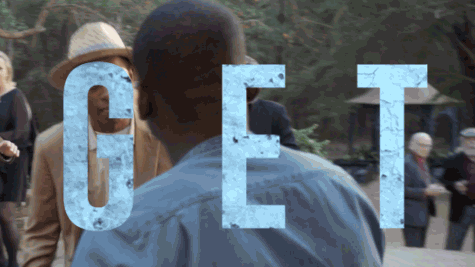
The elegance or Jordan Peele’s writing allows us to pirouette through racism that wears the mask of success and our psychological ties to an oppressor. Our protagonist, Daniel Kaluuya, plays Chris Washington, A young African American photographer who reminds me of many friends who bridge race and class divides with the success of their skill; bringing them deeper into a culture that is far set from their own, and the certain types of women and men that lurk there.
As Chris finds out when he goes on a weekend trip to see the parents of his fresh 5 month relationship with Rose Armitage, played by Allison Williams, who also starred in the show Girls. Balancing us yet again on this crux of black men and white women.
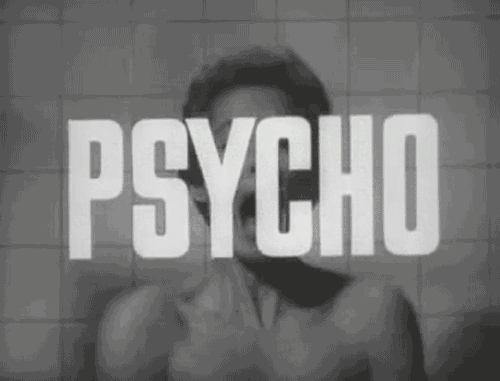
This film get's out the unique fears one might feel growing up in this country as an African-American and thrown into a supposed integrated world that is far from it. The pitfalls and jabs that one feels when all alone and facing the unfiltered wave of ignorant ass supremacy.
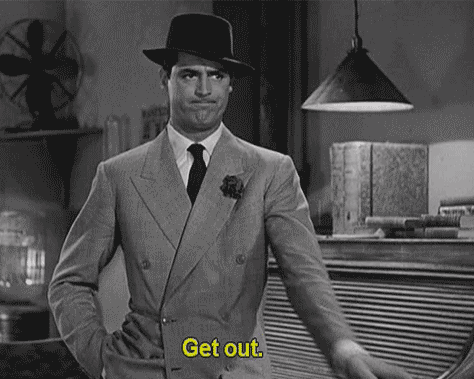
I think now on the many laughs me and my friends have about what we feel to be far fetched fears but come to life in this film! For example the true notion that as a black man I still get uncomfortable around too many white folks, no matter the nation, age or class, especially when alcohol is involved, cuz’ we all know that when the liquor starts flowing they mouthes open and just say the darnedest things to you,
“Oh I love your hair can I touch?”
"Oh Bro what sports you play?”
“Mmmm I heard about black men, is it true what they say?”
"How is it being black?"
“Wow look at this one, your smile, your teeth are so white?”
“Wow you speak so well and would never have thought!”
or my favorite:
"Hey man is just a joke, it's funny right?"
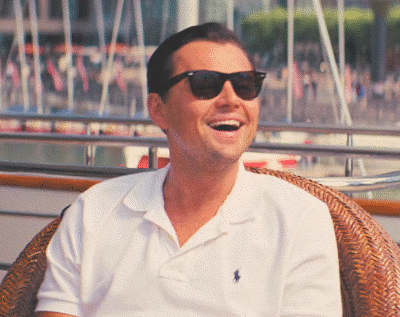
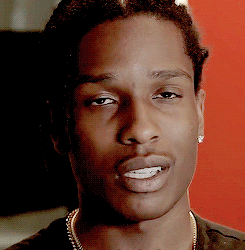
And I'm sure some will say most of those sound like complements and genuine politeness of a person trying to empathize with another. No. It is prattle and mockingly insulting. It stems from a place that attempts to gloss over the cacophony of horrid screams from the bloody mud of this land 'tis of thee. It reeks of appropriation, and genocide. It's an unaccepting ignorance that still wants to devour its dark, mysterious, prey.
You see, the old shrills of uncles and grandfathers speaking of dragging and lynchings from a brother who went a little too far into the white world always left my superstitious eye on the exit signs of any downtown bar, frat house, or suburban house party, that is flooded with white people. All should be taught such cautions as well, for accurate history in this country is hard to...get out.
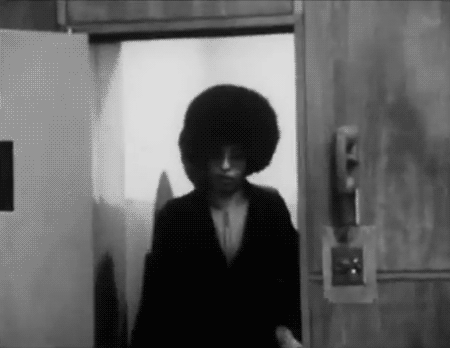
The film gives great one liners, and double entendre that will bury themselves deep into our context as Americans in dealing with the racial divide, one in particular had me weak throughout the film for its undoubted usage to try and mask one's prejudice tendencies:
"I would have voted for Obama for a third term if I could." says the neurosurgeon father when first meeting his daughter’s black boyfriend. I've heard many well off, liberal, white men in power, use this as a way to diffuse a remarkably racist comment that preceded it or would come shortly after.
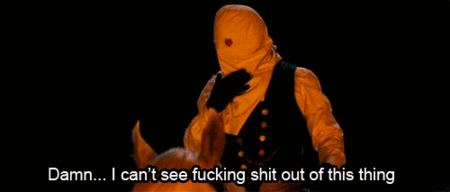
There is also a moment our protagonist must use 'cotton' in a way to try and overcome his captors. As well as a chokehold that is slowly counted out "1 mississippi, 2 mississppi..." Small relics, symbols, and adages that are doors into our poignant history. Perhaps my favorite of these is when another black man, played by Lakeith Stanfield, who also played in ATLANTA, is taken hostage by this strange town and explains what he feels about the black man's condition,
"In this county the black man has had a overall good time, and is born with great advantages, but hey I don't know much, I haven't wanted to leave the 'house' for quite some time." Oh how this rings of old Malcolm X speeches and uncle tom's cabin remakes, leaving a stark but humorous reminder of the house nigga who loves his master, and in fact wishes to be his master...
These little gems and many more bedazzle you in a film that uses the juxtaposition of imagery and satire to unravel the unspoken myths of American culture.
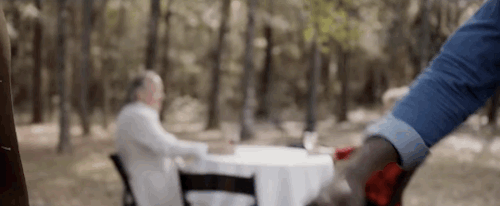
Perhaps what can't be glossed over is the true evil in the film appeared to some as a utter reflection of themselves. As I noticed in the young white girlfriend sitting in front of me who kept having to ask her black boyfriend what was so funny? Or embarrassingly apologizing since she had done some of those exact things.
While with something like the Texas Chainsaw Massacre or any other serial killer film the evil is an anomaly here it is the norm. This leaves the comments section of Get Out peppered by feelings of racism against Caucasians. Yet this is like every Hollywood film that portrays stereotypes of all other cultures in a menacing light. Not to mention as one home girl put it:
"So what about the micro aggression in suicide squad? The croc was clearly black watched bet ate Friday chicken wore velour suits with gold chain and listened to rap? I saw no white people complaining...Or when they make themselves the hero or savior of every film, last samurai, avatar, this Great Wall film that just came out; all under the guise the story won't be told/ watched if there isn't a white person in a lead role 🙄"
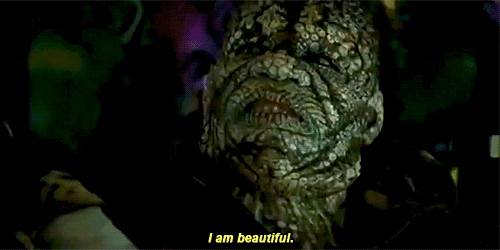
Oh how the kettle calls the pot! Well look, Here's an opinion of you outside of your own. good luck getting out of it!
A deep metaphor that runs through the core of this film is held in its appropriate title. Our protagonist must get out of a deep hole buried with in his subconscious, which is housed in the suburban outskirts, in a white picket fence mansion, in the heart of the white American dream. Can we escape our master's house, can we escape our master's women, can we escape our master's desires, can we escape our master? Must we escape from ourselves?
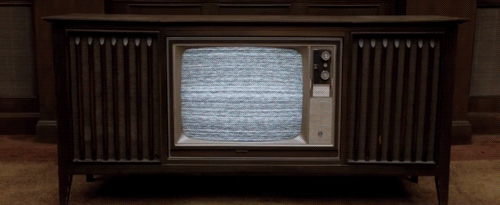
My palms were wet with sweat, gripping the theater chair arm rest as the film crescendos, and that feeling comes across you buried deep in your nerves from centuries of being hunted: Go! Go! Run! Get Out! As we have a hope that just maybe we will have a hero who runs off the psychological plantation into freedom! Away from the monstrous killer that was imbedded deep with in your own fears. Jordan Peele carried us to that deep seeded fear of the black man and white woman, that fear that underlies the belly of it all, of rape and murder and true horror.
Back into the woods and dark trees, where we hope our protagonist will not sink to that level that he is always portrayed, of beast, of burden, of object like they think he is, that he will not be caught, that he can find himself and get out alive with no regrets. And as the scene perches us all gripping each other, still, silent. Our protagonist becomes a hero under flashing lights.
To wash all of this down Jordan Peele naturally uses humor as the film’s saving grace. Unlike some race films like Birth of a Nation (the first one and the Nat Turner epic) Get Out doesn't leave one emotionally hateful and unstable, instead the ability to laugh at the portrayal of certain prejudices that we all have about each other allows us to experience the trauma with our serotonin popping; and with the aide of satire we can communicate why something is funny, and why something might be true.
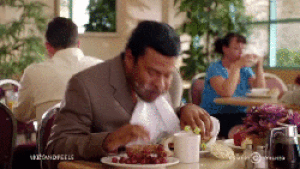
It leaves us closer together rather than dividing us as I'm sure many will say. Embraced in a terror that lurks even here in the hazy February theater of a mall in Anywhere, America.
This film get’s out the scariest nightmare, the one buried deep, the one you think is real. It get's out the stupidity of labels and walls that we put up because we are still ignorant of another's customs and stories and feelings. Well here we are, pressed tight together, from sea to shining sea, and from the repressed pits of a place, where we felt helpless, where we couldn't do anything, but sit there and watch TV, while our mothers and brothers, fathers and sisters, bled out in the streets and then were hung up like a deer's head in the den of your great grandfathers plantation mansion.
Here is a beautiful reflection of true horror, a real monster, dripped in gore, and fear, and honesty, as the deer’s head pierces your cornea and out oozes the greatest monster ever... a mirror. Can you get out of this image I present to you? Can you get out of your head? Can you get out of me?! But hey, it's only a joke, this is funny right?

Written by: Négré Micheaux
for F!!!RE Magazine issue #1
#GetOut#jordan peele#film#critique#fire#zoidz#article#blackhistorymonth#getoutthemovie#horror#blavity#huffblackvoices#negre micheaux#f!!!Re#magazine
3 notes
·
View notes
Photo

Bruno Mars Doesn’t Walk....he glides
It’s as if he’s perpetually ready to perform a Motown-style choreography set in front of tens of millions watching the Super Bowl (which he has done twice in the past four years)—even easing his way into a suburban L.A. pizza parlor, where moments earlier, his sexy, chart-topping 2012 hit, “Locked Out of Heaven,” was on blast, as if anticipating his appearance. Mars just has that aura. His outfit is straight Fania-era salsa/blaxploitation swag—Gucci cap over his curls; sunglasses; an open shirt, floral and teal; tan shorts; dress shoes (no socks, to accentuate those smooth legs); and minimal gold jewelry. He orders a plain slice, which he sprinkles with garlic powder, and a root beer. It’s obviously a joint he frequents, since he knows all the fellas by name, and the workers aren’t taken aback by the superstar in their midst. He walks to an open booth, wolfs down his food, controlling his urge to eat six more slices, he jokes, and proceeds to be the smoothest cat to ever have lunch at an old-school checkered-tablecloth pizzeria.
Mars learned about charm, confidence, and estilo early in life. “My whole sense of rhythm is because my dad was teaching me bongos as a kid,” he says of his father, Pedro Hernandez. “He’s an old-school working musician, so that’s where the pinky rings come from, the patent-leather shoes, the suits, and the pompadour. It all stems from watching my father. I remember at the time, me and my sisters would be a little embarrassed when he would take us to school in his big-ass Cadillac. No one had Cadillacs in Hawaii. But my dad would show up in some boat-looking Caddy wearing some silky shit, and we’d run out into the car as soon as possible. And here I am wearing the swap-meet gold, driving Cadillacs,” he says with a laugh.
Take one quick look at Mars’ recent music (the omnipresent Mark Ronson collaboration “Uptown Funk,” which amassed more than 2 billion YouTube views, the fourth-most ever, or his critically acclaimed 24K Magic) and his style (“pinky rings to the moon”), and it’s easy to see that his persona is not only inspired by his father but delivered as a conscious ode to Latino and African American masculinity. Brown and black men have long dealt with the stereotype of being hot-blooded, suave, savage animals lusting after anything with a pulse. Now Mars, 31, is embracing the Latin Lover archetype (if you’re not treating your girl right, we’re Mr. Steal Ya Girl) and giving anyone who’s offended a big middle finger. Mars’ dominance in pop culture takes on even greater resonance now, when the leader of the free world has called Latino men “rapists,” “drug dealers,” and “bad hombres.”“I hate that we’re even having a conversation about injustice in America,” he says of the current climate of social unrest. “That we are having a conversation about this in 2017; the same conversation that’s been had decades and decades ago.”Yet Bruno Mars doesn’t want to drown you with his wokeness; he just wants to make you shake what your mami gave you. The man is a musical genius—he writes, produces, sings, dances, plays instruments, and puts on arguably the best performances in the universe.
“Remembering when he was just my little brother looking up to me, staying by my side, playing music together, throwing around a football, just doing everything together—those were great times,” says Eric “E-Panda”Hernandez of his hermano and band leader. “Now he signs my paychecks, and he is my boss. I’m beyond proud of the man he has become.”But before he was Bruno Muhfuckin’ Mars, he was E-Panda’s lil’ bro, Peter Hernandez, born and bred in Hawaii to a beautiful Filipina and Spanish mom and Puerto Rock and Jewish papi from Brooklyn. His childhood musical career is well-documented on YouTube— at 4, he was the cutest Elvis Presley impersonator ever, performing with his family for oohing-and-ahhing tourists in Waikiki. As the years passed and his skills developed, Mars found himself dealing with racial-identity issues in the multicultural 50th state. “Growing up in Hawaii, there are not too many Puerto Ricans there,” says Mars, “so because of my hair, they thought I was black and white.”
The idea of not being easily categorized is something Mars has dealt with his entire life. When he moved to Los Angeles at 18 to make a serious go in the music industry, record label executives asked, “What are you? Are you urban? Are you Latin?”“There are a lot of people who have this mixed background that are in this gray zone,” he says, leaning forward to make his point. “A lot of people think, ‘This is awesome. You’re in this gray zone, so you can pass for whatever the hell you want.’ But it’s not like that at all. It’s actually the exact opposite. What we’re trying to do is educate people to know what that feels like so they ’ll never make someone feel like that ever again. Which is a hard thing to do. Because no one can see what we see and no one can grow up with what we grew up with. I hope people of color can look at me, and they know that everything they’re going through, I went through. I promise you.”All that to say that Mars is prouder than Manny Pacquiao to be Filipino, loves Hawaii more than Don Ho’s children, and, well, is as boricua as Marc Anthony eating a plate of arroz con gandules during his Todo a Su Tiempo era. Critics and those confused by his multiracial roots have insinuated that he’s ashamed of his Taino roots, truly a load of chupacabra crap, says Mars.“My last name is Hernandez. My father’s name is Pedrito hernandez, and he’s a Puerto Rican pimp. There’s no denying that.”“I’d love to clear that up in Latina magazine,” he says, raising his voice. “I never once said I changed my last name to hide the fact that I’m Puerto Rican. Why would I fucking say that? Who are you fooling? And why would anyone say that? That’s so insulting to me, to my family. That’s ridiculous. My last name is Hernandez. My father’s name is Pedrito Hernandez, and he’s a Puerto Rican pimp. There’s no denying that. My dad nicknamed me Bruno since I was 2 years old. The real story is: I was going to go by ‘Bruno,’ one name. Mars just kind of came joking around because that sounds bigger than life. That was it, simple as that. I see people that don’t know what I am, and it’s so weird that it gets them upset. It’s an oxymoron—the music business; like the art business. You’re making a business out of these songs that I’m writing. And how are you going to tell me that this song that I’m writing is only going to be catered to Puerto Ricans or to white people or only Asian people. How are you going to tell me that? My music is for anybody who wants to listen to it.”
An incredible number of people want to do just that. Mars’ combined sales for his first three albums are more than 100 million, along with his 2013 Moonshine Jungle Tour and his upcoming 100-date 24K Magic World Tour, which begins in late March and sold more than a million tickets in one day. Concertgoers will be treated to the Mars stage presence—an aura influenced by his family and the greats: Michael Jackson, James Brown, and Prince. Needless to say, Mars’ music is undoubtedly black.
“When you say ‘black music,’ understand that you are talking about rock, jazz, R&B, reggae, funk, doo-wop, hip-hop, and Motown. Black people created it all. Being Puerto Rican, even salsa music stems back to the Motherland [Africa]. So, in my world, black music means everything. It’s what gives America its swag. I’m a child raised in the ‘90s. Pop music was heavily rooted in R&B from Whitney, Diddy, Dr. Dre, Boyz II Men, Aaliyah, TLC, Babyface, New Edition, Michael, and so much more. As kids this is what was playing on MTV and the radio. This is what we were dancing to at school functions and BBQs. I wouldn't be here if it wasn't for these artists who inspired me. They have brought me so much joy and created the soundtrack to my life filled with memories that I'll never forget. Most importantly, they were the superstars that set the bar for me and showed me what it takes to sing a song that can get the whole world dancing, or give a performance that people will talk about forever. Watching them made me feel like I had to be as great as they were in order to even stand a chance in this music business. You gotta sing as if Jodeci is performing after you and dance as if Bobby Brown is coming up next.”It’s refreshing to hear a pop star say it loud and proud: black music is American pop culture. Latinos and African Americans aren’t just connected by the racism and dis- enfranchisement we’ve dealt with historically; we’re also connected by our music and traditions. We hear it in J Balvin’s reggaeton heaters and in Rihanna’s Caribbean patois, as well as in the eloquent, piercing words written by Ta-Nehisi Coates and Junot Díaz. We’re one. And Bruno Mars combines the best of all of our aspirations and goals into one super artist.Above all, the world has to thank his parents for nurturing his talent at an age when most kids were still using pull-up diapers. While his pops gave him his style, his mom, Bernadette San Pedro Bayot, gave him his heart. After each performance, Mama Mars would call or text to congratulate him on another gem or to say to get some rest. The memory of her sudden death in 2013 from a brain aneurysm still shakes him.“The woman who taught you to love, showed you what a woman is supposed to be,”
says Mars, his voice trembling slightly for the first time during an interview where he’s been all smiles and laughs. “When that goes away, a little more than half your heart goes away with it.”
THEY SAY IT’S HARDER TO LOSE A PARENT AS AN ADULT BECAUSE AT THAT POINT YOU’RE PEERS, YOU’RE FRIENDS. EVERYTHING CHANGES, NOTHING WILL EVER BE THE SAME.“You just gotta know that she’s with me everywhere I go,” he says. “It’s some- thing that you can’t imagine—the pain and the things that you keep going back to: ‘I wish I would’ve done this or said this.’ You just have to see life differently. It shows you the real importance of life. Nothing else matters in this world but family and your loved ones.”When asked if his music has changed à la Kanye West when he lost his mother, Donda, Mars pauses. “I don’t know how to answer that question,” he says. “My life has changed. She’s more than my music. If I could trade music to have her back, I would. I always hear her say, ‘Keep going and keep doing it.’”
Mama Mars certainly did an amazing job. Mars’ longtime girlfriend, model Jessica Caban, definitely reaps the rewards of his having such a great mother. Mars isn’t big on sharing about his life with Caban, but social media paints an adorable #relationshipgoals idea of their courtship.I got this fire in my blood. For me, you gotta keep up
It’s all in. It’s ‘I’m going to love the shit out of you, and I’m going to fuck you up later,’” says Mars jokingly, laughing about his attraction to Latinas, obviously with Caban in mind. “It’s all in. And that’s what keeps that fire going.”
As he wraps the interview, which felt more like two bros shooting the ish, Mars dips through the back of the pizzeria, jumps in his black Cadillac and pulls to the front. He asks this reporter, “Where you going? Maybe I can give you a lift.” “Downtown L.A.,” the reporter says. “Oh! You better Uber that shit!” Mars says with a smile. It was expected. Not because Mars is too Hollywood, but because where he’s going, not many have gone.
#Bruno Mars#Bruno Mars Latina Magazine#Bruno Mars 2017#Puerto Rican#Filipino#link#interview#bet someone will go ahead and post it and get the notes bu#t whateverrrrrr
16 notes
·
View notes
Link
If your aim is to tell a nuanced story about heroism, historical trauma and revenge, it’s probably best to keep Nazis—by which I mean the literal perpetrators of the Holocaust—out of it. From a thematic perspective, it’s very hard to win with these guys. Depict them as brilliant, bloodless killing machines, and you’ll burnish their terrifying mythology; choose instead to paint them as dimwitted, incompetent henchmen, and you’re liable to trivialize the suffering and deaths of millions. A few beloved films that take aim at Nazis have managed to avoid these traps by sacrificing emotional realism in favor of off-the-wall satire (The Producers) or sheer catharsis (Inglourious Basterds). Unfortunately, Amazon’s Hunters tries to juggle all three modes, for the duration of a 10-episode TV series, without anything approaching Mel Brooks’ wit or Quentin Tarantino’s technical flair.
Created by relative newcomer David Weil, Hunters will arrive on Prime Video on Friday, Feb. 21 with the imprimatur of executive producer Jordan Peele. It’s set in 1977—that culturally dense year remembered for Star Wars, punk, disco and the Son of Sam murders—and our hero is a young Jewish Brooklynite, Jonah Heidelbaum (Logan Lerman of Percy Jackson fame). Though he’d ideally be in college putting his prodigious smarts to use, Jonah is living at home, working in a comic store and moonlighting as the city’s most inept weed dealer in order to support the Holocaust-survivor grandma (Jeannie Berlin) who raised him. But there’s more to this doting matriarch than Jonah knows, until tragedy strikes and he meets her friend Meyer Offerman (the great Al Pacino, overdoing the stock old-Jewish-guy mannerisms a bit) and gets drawn into a squad of vigilantes assassinating members of a vast network of Nazis living under assumed names in the U.S.
Elsewhere in a 90-minute premiere that feels longer, a suburban-Maryland barbecue ends in a cartoonish burst of gunfire. Homegrown Nazi psycho Travis Leich (Greg Austin) calmly delivers wicked white-supremacist monologues in between calmly committing horrific acts of violence. And Millie Malone (Grey’s Anatomy alum Jerrika Hinton), a black woman struggling to earn respect in the overwhelmingly white, male FBI, is sent to Florida to investigate the murder of an elderly, female NASA scientist. The network of undercover Nazis starts to take shape, as does their evil plot to bring about a Fourth Reich on American soil.

Christopher Saunders/Amazon
Inspired in part by real mid-20th-century Nazi hunters and the shameful U.S. government initiative Operation Paperclip, Hunters shares with Peele’s movies an effort to use fun, propulsive genre storytelling as a vehicle for serious social commentary. Horror, for Peele, is a way of heightening our visceral responses to racism, exploitation, inequality. But Weil’s genre is action comedy, and the comedy in Hunters falls pretty flat. Dick jokes and scatological gags—some harrowingly visual—are constant. I’m not scandalized by this kind of humor, and it wouldn’t necessarily be a problem if it were confined to Jonah and his teen pals (one of whom is called “Bootyhole”). Instead, we hear it from good guys, bad guys, young, old and everyone in between.
These aren’t the only characterizations that feel shallow or underdeveloped. Millie so closely resembles the righteous, earnest detective characters in network procedurals that her scenes almost seem spliced in from a different show. Opting to portray the Nazis as a hierarchy of cartoon villains, Weil makes them so uniformly crafty and fearsome that you can imagine contemporary neo-Nazis watching Hunters and feeling pretty good about their forebears. More disappointing are the Jewish characters, whose personalities are largely accumulations of benign stereotypes, religious factoids and firsthand or inherited trauma. Gefilte fish comes up so often, you’d think every Jew on the planet devoured those gelatinous gray discs daily. Though I wasn’t alive, much less in New York, in 1977, I did grow up Jewish among Jews of Meyer’s and Jonah’s generations, and for me these depictions (like gefilte fish) didn’t pass the smell test.
It seems obvious that caricatures of Jews, even affectionate ones, don’t make a very effective case against antisemitism. But the show also makes subtler, equally unfortunate choices in the way it represents racism. When it’s convenient to the story, anti-Jewish prejudice appears to eclipse or even erase the violence and discrimination nonwhite characters face—such as when Jonah’s black female love interest is dating a belligerent white guy who calls Jonah a “kike.”

Amazon Studios, Prime Video—Christopher SaundersJerrika Hinton in ‘Hunters’
The show’s biggest problem is the garbled messages it sends about violence and revenge. Like Tarantino, Weil palpably savors the suffering of Nazis and wants viewers to do the same. (There’s one particularly gross torture scene whose pleasures Amazon has cautioned me against “spoiling” with a description here.) And I’m not above admitting that I frequently felt a thrilling sense of poetic justice at the sight of mass murderers dying the same gruesome deaths they inflicted on millions of innocent victims. Yet Hunters also shows us those tragic deaths—both in flashbacks to the concentration camps and through the resurgent Reich’s crimes in its new home. Often they’re rendered glibly enough to be indistinguishable from the righteous kills. In a scene set amid the ironic brightness of a bowling alley, Travis, a near-omniscient villain of Coen Brothers proportions, smashes a guy’s teeth in with a bowling ball.
To his credit, Weil’s intention isn’t really to conflate genocide with vengeance for same. In interviews, he talks about growing up with a grandmother who survived the Holocaust and how as a kid her stories sounded to him like “the stuff of comic books and superheroes,” tales of “great good but grand evil.” He’s said that he hopes Hunters can provide “catharsis” and “wish fulfillment.” But he’s also observed that it “becomes this story that lives not in black and white, but in the gray and that murky morality,” posing the question: “If we hunt these monsters, do we risk becoming them ourselves?” Some of that ambivalence comes through in Jonah’s queasiness about becoming a killer, which inspires an intriguing but all-too-brief consideration of whether it’s possible to be a superhero—to be a good person who can stomach massacring bad people—if you don’t harbor considerable darkness of your own. But mostly, the show’s choice to make all forms of violence entertaining overshadows that nuance. At worst, Hunters can lose its antifascist chutzpah and start to come across as equal-opportunity sadistic.
It’s an unfortunate—perhaps the single most unfortunate—fact of life in 2020 that Nazis have recently goose-stepped their way into mainstream American politics, and thus that stories about killing them have begun to resonate as subversive for the first time in our history. That shouldn’t render them off-limits for the entertainment industry. (Just last year, HBO’s comic-book adaptation Watchmen used the superhero genre to launch a withering critique of white supremacy and its insidious, systemic influence in the U.S.) But it does mean that storytellers across media need to be cognizant of the moral and political undertones of their portrayals to an extent that Weil and co-showrunner Nikki Toscano don’t seem to have been. I trust that they as well as Peele, a busy filmmaker whose level of creative input here is unclear, have their hearts in the right place. It’s just a shame that there seems to be so much distance between what Hunters wants to say and what it actually expresses.
0 notes
Text
Thought Paper #2: Misrepresentation
Regardless if what you see or hear is a fantasy, when it is constantly in your face it becomes your reality. Media has always been a powerful force in society, and heavily influences the way one can perceive other people, communities around them, and the world. The media contributes to the maintenance of inequalities because it pushes the notion that whiteness is rightness. With the subtle and blatant dehumanization of people of color, especially Black people, cause an exaggerated and unnecessary sense fear and puts a target on the backs of marginalized groups. bell hook’s Oppositional Gaze touches on the ways Black people should look at these incorrect representations and what should be done about them. hooks also goes into the difference in how Black men and women look at these representations and how Black women are more often than not get the short end of the stick. The difference in how Black and White people are treated in schools, businesses, the justice system, and advertising heavily relies on the way the media puts us out in the public. How deep these differences go also bring light to the difference in how Black men and women are represented in the media as well.
How are group of people is represented in the media, true or not, often is how society sees that group. From being nameless in the media to only have stereotypical roles available in entertainment, Black people are constantly victims of inequality. In media like the news White people are given the benefit of the doubt when they commit crimes. Their names, occupations, accolades, number of children, dog’s name, and favorite things to do are displayed when speaking of this White person that committed a crime. Even pictures that give them suburban and innocent demeanor are shown as well. This makes the person seen as if they are incapable of committing a crime, and if not always, most of the time makes you think maybe they got the wrong person. But in the case of Black people, incriminating pictures are used to show the accused. News networks will mention any potential prior or accused crimes of the person as well, making it extremely difficult to not see Black people as criminals and dangerous.
On the same note, but a different token the same type of framing happens with school shooting vs. any kind of violence committed by Black people. In the history of school shooting, an overwhelming amount of them have been committed by White men, but instead of seeing these people as the criminals they are, they get dubbed as mentally ill. And although that is the easy way to explain such tragic events, the reality is that not every person that does horrible things is “crazy”. I bring this up due to the fact that the same energy is not kept when Black people are involved. I personally do not know of any Black people who have committed mass shootings, and maybe that is my lack of knowledge or that there haven’t been any, but what I do know is that when Black people commit crimes like killings the media can’t even begin to conceive the idea that they could have mental illnesses as well. Having to deal with it being mandatory to work two to eight times harder than everyone else around you, having to grow up sooner than your counterparts, having to calculate every move you make around certain people and police, having to potentially code switch based on who you are speaking to, especially if you want to continue to or even just simply be employed, having to fight and protest for things that you deserve, having to see people you know being killed and abused because of the color of their skin, and having a goal be seeing the light of day tomorrow, Black people are forced to deal with so much just to be able to survive, and maybe make a living in this world, all of these are very possible reasons that a person could be mentally ill, or commit a crime, but being Black doesn’t come with the benefit of the doubt.
The misrepresentation of Black people is deeply rooted in this country. With caricatures like the Black Sambo, who played on the idea that the enslaved were content, and even happy about their place in society. The Black Mammy, who was depicted as pitch black, fat and happily obedient to her master and mistress. The Zip Coon, who was a caricature that mocked Black people in the North. It portrayed a Black person attempting to “act” white in their speech, dressing, and behavior, but failing miserably. The Zip Coon was a caricature that made inequality a joke because it made it seem that Black people were incapable of being the equal of white people. The Sapphire, who portrays black women as rude, loud, malicious, stubborn, and overbearing, the use of the Sapphire created the “angry black woman” stereotype. All of this caricatures were how Black people were represented in the media, and White people fed into them. Whether it was being a part of one of the many minstrel shows or consuming them without questioning if these things were even true. These caricatures were referenced in the documentary Ethnic Notions, directed by Marlon Riggs. Ethnic Notions dissected the anti-black stereotypes that have and still do penetrate the media. This documentary opened my eyes to how in most cases Black people are taken for a joke, our misrepresented experiences, pain, and oppression was, a still is used for comedic pleasure.
To be Black in this society is hard, and to be a Black women in this society is harder. Oppositional Gaze, an essay written by Gloria Jean Watkins, better known by her pen name bell hooks, is an American author, feminist, and social activist. The name "bell hooks" is derived from that of her great-grandmother, Bell Blair Hooks. hooks speaks on the difference in how Black women and Black men are viewed and relate to the media she also discusses the importance of gaze. The meaning I got from gaze was being conscious, which is why I believe people who are politically and socially powerful want the masses to be separated from their gazes. This lack of consciousness ultimately allows people who have no concept of the Black experience to make a profit off of it’s misrepresentation. This misrepresentation affects all Black people, but due to the different types of gazes we have the effect is more severe for some. For example, due to Black men have the male gaze they can connect to the media they watch, whether it be the way the view women, sexuality, life, or education. Although for Black women the representation we see only goes as far as our bodies, sexualities, and perceived attitudes.
hooks speaks about the caricature of the Sapphire in the text as well. She describes the Sapphire’s purpose as being the one who makes the Black man likeable, humorous, and human to the audience, by being the opposite. When I read this I thought of the Black women on tv that I have seen and were most likely suppose to represent these Sapphires. There were Thelma and Winona from Good Times, Thelma would always make fun of her brother J.J. and insult his intelligence, and Winona always criticized Bookman for his weight. Others included the notorious Pam from Martin, Gina’s best friend who would go back and forth with Martin anytime they saw each other. I then thought about how all three of these women happen to be of a darker skin-tone. This made me dig deeper into the angry Black woman stereotype. Think, most of the time when someone is described as an “angry Black woman” they are dark, which demonizes dark skinned women. But what I don’t understand with the stereotype is why no on ever asked why these women are angry. In all honesty with the examples I gave it is because the men they criticized didn’t know how to act, and the way the audience takes this arguing might be deeper than it actually is. Most people insult the people their close with, and at the end of the day it’s all jokes, but its when Black people do it it’s seen as “castration of the Black man”. Then I compared Thelma, Pam, and Winona to Whitley Gilbert from A Different World, and realized that Whitley had many of the same characteristics of these women, but due to her wealth, pristine attitude, and skin color she was seen as just being sassy. Whitley, before she fell in love with Dwayne, would insult and make fun of any and everyone, regardless if they initiated it or not. So, why is Whitley Gilbert, not seen as a Sapphire?
The way the media portrays that Black community is detrimental to our advancement. More often than the way we are treated by society heavily relies on how people see us. People will tell you that they form their own opinions, but in reality if something is in your face enough you will believe it. A possible solution to this issue is to have more Black reporters, actors, doctors, engineers, and business owners to show that we more than a statistic. The humanization of Black people is something that needs to be brought to life as well. Say our names, show our accolades, explain that we have children, siblings and parents, discuss the possibility of mental illness, and give us the benefit of the doubt regardless of how light or dark we are. Show Black people as what we are, people.
Works Cited
“Oppositional Gaze.” Black Looks: Race and Representation, by Bell Hooks, South End Press, 1992, pp. 115–131.
Riggs, Marlon, director. Ethnic Notions. California Newsreel, 1987.
youtube
0 notes
Text
Yellow Spectre (A Personal Essay)
By: Jennifer Moore
Yesterday, I watched a video of two black women demonstrating a typical visit to the nail salon. At first, I was thinking, this might be a nice tutorial on how to do water-marbling or some technique on nails, but in hindsight, I should have anticipated it turning into a satirical skit on how Vietnamese/Chinese nail salon stylists work. The woman used a facsimile of an Asian accent to mock how they speak broken English, and then when she was “consulted” about the price she went into a full-blown “Vietnamese” pontification consisting of scrambled phonetic screeches and brassy hullaballoos. I couldn’t believe what I was watching, they took a seemingly racially neutral task and inflated stereotypes of Asian women, mocked their language, criticized their pricing techniques – as if they’ve never seen a Billy Mays or a Shamwow commercial in their lifetime, they shouldn’t apologize for being good businesswomen, no one forces you to buy extra services or products anywhere, that’s your own prerogative and gullibility. Just because comedian Anjelah Johnson covered the nail salon in one of her comedic routines, and this video is a spoof of that, does not grant it immunity for it being classified as racism.
Starbucks, Charlottesville, Reparations Happy Hour, and other BLM events have overshadowed the racism of every other demographic. Everyone always talks about the black and white spaces of racism, as if the earth is a mosaic chess board, but there are hordes of other races in existence. I don’t mean to condescend or make the racism against blacks seem minute, but what we need to acknowledge is that race is a global issue, and not specifically revolving around a specific pushpin upon the globe. After looking at the comments for the nail salon video, a lot of people of color felt the need to reassure me that what I watched was not an example of racism. It was instead, an illustration of “enforcing harmful stereotypes, and mocking a culture, and language.” Is that not an ad libitum mad-lib definition of racism?
Personally, I did find the video funny like a lot of people, but comedic relief doesn’t void the fact that it was racist. I grew up with racial phrases thrown at my left and right like colorful Koopa shells in Mario Kart. When I was little, my peers would pull their eyes to the side like hot pink floral lace panties, chant “me chine me chine,” in an archaic Vietnamese accent, implore me to speak a sentence or two in Vietnamese just because they can, and being taught about Black History month, but not finding out about Asian American and Pacific Islander Pride Month until today. I knew what racism was from a young age, hearing girls snicker about their gossiping nail salon stylists, and how they couldn’t speak English well enough. But the hierarchy of racial oppression created by the left didn’t leave a crack in the bricklaying work for Asian Americans to fit in.
Growing up in a mixed suburban neighborhood, I grew up thinking that neighborhoods were bingo boards, rife with potential to be blotted by variously colored daubers. Society doesn’t consist of white, black, and Neapolitan spaces – neighborhoods are allowed to be whatever they want to be, lighting up their porch lights whatever color they want, and no residence is necessarily owned by a specific demographic. I grew up as a Vietnamese, Chinese, and Irish mutt, not really neatly fitting into any particular racial bubble on a medical form. I got to learn English and Vietnamese simultaneously, learning the complexities and attributes of multiple languages and cultures. Now that I’m an adult, I don’t take lightly to those that insult others and those that facilitate racism in general, especially against my own cultures.
Racism according to Merriam Webster, is “prejudice, discrimination, or antagonism directed against someone of a different race based on the belief that one's own race is superior.” The black woman in the video I watched evidently exhibited interpersonal racism through the use of inflated stereotypes, racy jokes, and concocting a comical version of the Vietnamese language. To the people that don’t think the video is racist, had the women been Asian, and spoke Khoisan, one of the languages with syllables pronounced as clicks, mocked a Jamaican accent, or spoke with a certain street cred with the words “swag,” “aks,” “hood,” “n*gga,” and other African American vernacular English lexicography, I’m sure that would immediately be categorized as racism. I thought we were past the days where white people were the only ones that took the stage, using black vernacular, exaggerated stereotypes, and other minstrel performances to depict African American people, but imitating other races is waking up the ghost of Shakespeare.
People always tell me that because I’m a part of the yellow fever minority, that I should advocate for black rights. I advocate for equal rights across the board, regardless of sex, gender, orientation, race, and any other politically/nonpolitically protected class. Someone got upset at me when I shared that video because I wasn’t addressing the relevance of black racism, it’s called relevance for a reason. I shared a video concerning racism against Vietnamese people, I don’t feel compelled to extend my concern towards black racism when that’s not the topic at hand. I write captions and comments based on the post at hand, not dragging in irrelevant concerns that could be addressed elsewhere.
Then the anonymous Facebook user alluded to me being racist because I was not addressing the black counterpart of racism. I shouldn’t have to spell out my entire knowledge of racism in order to establish my credibility in making a post, especially about my own race. But anyways, I shut her down when I mentioned the fact that all races have experienced some form of racism. There was Starbucks, Charlottesville, the Rwandan genocide, Japanese internment camps, and an influx of Chinese workers that she pejoratively called the yellow peril. And I’m supposed to be an advocate for black rights when they facilitate an environment that launches nuclear attacks against me and my fellow gooks? Their only perspective or impression of Vietnamese people are probably the Vietnamese prostitutes from Full Metal Jacket.
To those people that make fun of Vietnamese and Chinese nail salon workers, nail polish was invented in Ancient China circa 3000 B.C. Over the years, the art has been perfected, transformed, and refined into the fashion conglomerate that it is today. Vietnamese and Chinese people are the ones that have the rich history and credibility to this underappreciated field of work, wouldn’t having anyone else do your nails be a façade, robbing you of an authentic experience? Just like those Chinese food and Vietnamese cuisine places, do you trust an Americanized version of Asian fusion dishes from Panda Express, or authentic Asian food from an immigrant family’s local restaurant? I was leaving Walmart yesterday when I saw what looked like an ordinary claw machine, that was called Prize Pagoda, with prizes packaged up in “Chinese” take-out boxes splashed with red calligraphy insignia, which are actually creased pieces of colorful cardboard topped with a wire, a box invented in Chicago by Frederick Wilcox, at the time in 1894 called a paper pail, but was just a level up from the basic box formerly called the oyster pail. America has facilitated the inflation of stereotypes of all people, but with the help of others to break the bamboo ceiling we can overcome the traps of Asian stereotypes and overlooking the myth of the “model minority” chicanery.
Circling back to the video, judging by the haphazardness of the rant, it sounded more like the Hmong language rather than Vietnamese or Mandarin. It really sickens me that this is what people really think of Vietnamese and Chinese people, especially immigrants. If you can’t respect the person that does your nails, regardless of if they are Asian or not, plenty of cosmetic stores sell bottles of nail polish and you are free to do your own. Asians have it hard in this country, and just because there aren’t that many of us, it doesn’t mean that we are immune to misfortune. The stereotype of Asians being good at myth, isn’t anything to make fun of or use against someone else. The “A- is an Asian F” stereotype is a reality for many Asian American students. Their parents instill into them disciplinary actions if their academic achievements aren’t up to bamboo marked par. Asian parents want the best for their children, working tirelessly to put them through school, and making sure that they do their best. One of my teachers in seventh grade told me that I was eligible to skip a grade but told me that I shouldn’t because I was too short – and she wasn’t joking. I did really well in high school, but that doesn’t mean that my “Asian persuasion,” was the catalyst for my high grades. In college, I studied harder and applied myself more, and I sit with an approximate 3.3 GPA at the end of my freshman year. Sure, I’m disappointed in myself, but I’m human and make mistakes.
Another stereotype I wanted to address was eating animals, more specifically dogs, cats, and monkeys. Yet again, the left uses a small demographic of people to scrutinize a majority. These people talk about the slaughter of dogs during the Chinese summer solstice festival known as the Yulin Dog Meat Festival. How is eating dogs, any worse than the dog fighting, kill shelters, and euthanasia of dogs (and other animals) in the United States? Humans consume many different animals for protein-sake, why is the cultural consumption of dogs so berated against? I have never once eaten dog meat, nor has anyone in my family. This is a part of Chinese culture, but not everyone necessarily partakes in it. Just like Columbus Day, not everyone celebrates it in America, but the holiday still exists none the less. I remember going out to a zoo for a class field trip, and one of the students pointed to the monkey cage, and said, “These are the animals that Jenn eats at home.” I was so utterly embarrassed at his ignorance, he even asked me what it tastes like. My mom had a bit of culture shock when coming to America. There was this one time where her and my dad were at a hotdog stand, and she was like “No I don’t want one, I don’t eat dog meat.” My dad had to explain to her that they weren’t actually dogs, and the two of us enjoy them from time to time. I just wanted to show you that not all stereotypes are necessarily true.
Then there’s the stereotype that really gets under my skin; the perpetual foreigner. Aside from being asked how tall I am, the most irritating question I get asked is “Where are you really from? I was born in Framingham, Massachusetts, and I am not sorry if that answer wasn’t good enough for you. I don’t have a really neat immigration story, I’m not going to fabricate an interesting story to entertain you, nor do I have an accent to prove my nationality, but I have a wonderful Asian family if that’s what you’re asking.
And then there’s the racial fetishization of Asian women, and men as well. I feel like this started with the rise in Vietnamese prostitutes, and in Asian mail-order “brides,” which led to the extortion of Vietnamese women in brothels, and by extension other places as well. When I had Tinder, the number of times I heard, “Wow, I’ve never been with an Asian before,” was seemingly endless. My only response is, “Wow, I didn’t know that your hand was yellow before.” Sure, Asian might be a category on Pornhub, but Asians have so much more to offer the world than fornication. And please for the love of God, stop asking me how I’m going to pay for college expecting me to say, “sucky sucky five dollah,” or “anything you want fifteen dollah.” I am utilizing scholarships and the good ol’ FAFSA just like everyone else. My mom raised me with self-respect, not just tossing me to the side to become a lotus blossom baby, geisha girl, china doll, “Dragon Lady,” or a war bride. Asian women are strong, confident individuals unlike the submissive, coquettish, helpless damsels in distress that are portrayed in movies.
1 note
·
View note
Link
February 17, 2020 at 12:01AM
If your aim is to tell a nuanced story about heroism, historical trauma and revenge, it’s probably best to keep Nazis—by which I mean the literal perpetrators of the Holocaust—out of it. From a thematic perspective, it’s very hard to win with these guys. Depict them as brilliant, bloodless killing machines, and you’ll burnish their terrifying mythology; choose instead to paint them as dimwitted, incompetent henchmen, and you’re liable to trivialize the suffering and deaths of millions. A few beloved films that take aim at Nazis have managed to avoid these traps by sacrificing emotional realism in favor of off-the-wall satire (The Producers) or sheer catharsis (Inglourious Basterds). Unfortunately, Amazon’s Hunters tries to juggle all three modes, for the duration of a 10-episode TV series, without anything approaching Mel Brooks’ wit or Quentin Tarantino’s technical flair.
Created by relative newcomer David Weil, Hunters will arrive on Prime Video on Friday, Feb. 21 with the imprimatur of executive producer Jordan Peele. It’s set in 1977—that culturally dense year remembered for Star Wars, punk, disco and the Son of Sam murders—and our hero is a young Jewish Brooklynite, Jonah Heidelbaum (Logan Lerman of Percy Jackson fame). Though he’d ideally be in college putting his prodigious smarts to use, Jonah is living at home, working in a comic store and moonlighting as the city’s most inept weed dealer in order to support the Holocaust-survivor grandma (Jeannie Berlin) who raised him. But there’s more to this doting matriarch than Jonah knows, until tragedy strikes and he meets her friend Meyer Offerman (the great Al Pacino, overdoing the stock old-Jewish-guy mannerisms a bit) and gets drawn into a squad of vigilantes assassinating members of a vast network of Nazis living under assumed names in the U.S.
Elsewhere in a 90-minute premiere that feels longer, a suburban-Maryland barbecue ends in a cartoonish burst of gunfire. Homegrown Nazi psycho Travis Leich (Greg Austin) calmly delivers wicked white-supremacist monologues in between calmly committing horrific acts of violence. And Millie Malone (Grey’s Anatomy alum Jerrika Hinton), a black woman struggling to earn respect in the overwhelmingly white, male FBI, is sent to Florida to investigate the murder of an elderly, female NASA scientist. The network of undercover Nazis starts to take shape, as does their evil plot to bring about a Fourth Reich on American soil.

Christopher Saunders/Amazon
Inspired in part by real mid-20th-century Nazi hunters and the shameful U.S. government initiative Operation Paperclip, Hunters shares with Peele’s movies an effort to use fun, propulsive genre storytelling as a vehicle for serious social commentary. Horror, for Peele, is a way of heightening our visceral responses to racism, exploitation, inequality. But Weil’s genre is action comedy, and the comedy in Hunters falls pretty flat. Dick jokes and scatological gags—some harrowingly visual—are constant. I’m not scandalized by this kind of humor, and it wouldn’t necessarily be a problem if it were confined to Jonah and his teen pals (one of whom is called “Bootyhole”). Instead, we hear it from good guys, bad guys, young, old and everyone in between.
These aren’t the only characterizations that feel shallow or underdeveloped. Millie so closely resembles the righteous, earnest detective characters in network procedurals that her scenes almost seem spliced in from a different show. Opting to portray the Nazis as a hierarchy of cartoon villains, Weil makes them so uniformly crafty and fearsome that you can imagine contemporary neo-Nazis watching Hunters and feeling pretty good about their forebears. More disappointing are the Jewish characters, whose personalities are largely accumulations of benign stereotypes, religious factoids and firsthand or inherited trauma. Gefilte fish comes up so often, you’d think every Jew on the planet devoured those gelatinous gray discs daily. Though I wasn’t alive, much less in New York, in 1977, I did grow up Jewish among Jews of Meyer’s and Jonah’s generations, and for me these depictions (like gefilte fish) didn’t pass the smell test.
It seems obvious that caricatures of Jews, even affectionate ones, don’t make a very effective case against antisemitism. But the show also makes subtler, equally unfortunate choices in the way it represents racism. When it’s convenient to the story, anti-Jewish prejudice appears to eclipse or even erase the violence and discrimination nonwhite characters face—such as when Jonah’s black female love interest is dating a belligerent white guy who calls Jonah a “kike.”

Amazon Studios, Prime Video—Christopher SaundersJerrika Hinton in ‘Hunters’
The show’s biggest problem is the garbled messages it sends about violence and revenge. Like Tarantino, Weil palpably savors the suffering of Nazis and wants viewers to do the same. (There’s one particularly gross torture scene whose pleasures Amazon has cautioned me against “spoiling” with a description here.) And I’m not above admitting that I frequently felt a thrilling sense of poetic justice at the sight of mass murderers dying the same gruesome deaths they inflicted on millions of innocent victims. Yet Hunters also shows us those tragic deaths—both in flashbacks to the concentration camps and through the resurgent Reich’s crimes in its new home. Often they’re rendered glibly enough to be indistinguishable from the righteous kills. In a scene set amid the ironic brightness of a bowling alley, Travis, a near-omniscient villain of Coen Brothers proportions, smashes a guy’s teeth in with a bowling ball.
To his credit, Weil’s intention isn’t really to conflate genocide with vengeance for same. In interviews, he talks about growing up with a grandmother who survived the Holocaust and how as a kid her stories sounded to him like “the stuff of comic books and superheroes,” tales of “great good but grand evil.” He’s said that he hopes Hunters can provide “catharsis” and “wish fulfillment.” But he’s also observed that it “becomes this story that lives not in black and white, but in the gray and that murky morality,” posing the question: “If we hunt these monsters, do we risk becoming them ourselves?” Some of that ambivalence comes through in Jonah’s queasiness about becoming a killer, which inspires an intriguing but all-too-brief consideration of whether it’s possible to be a superhero—to be a good person who can stomach massacring bad people—if you don’t harbor considerable darkness of your own. But mostly, the show’s choice to make all forms of violence entertaining overshadows that nuance. At worst, Hunters can lose its antifascist chutzpah and start to come across as equal-opportunity sadistic.
It’s an unfortunate—perhaps the single most unfortunate—fact of life in 2020 that Nazis have recently goose-stepped their way into mainstream American politics, and thus that stories about killing them have begun to resonate as subversive for the first time in our history. That shouldn’t render them off-limits for the entertainment industry. (Just last year, HBO’s comic-book adaptation Watchmen used the superhero genre to launch a withering critique of white supremacy and its insidious, systemic influence in the U.S.) But it does mean that storytellers across media need to be cognizant of the moral and political undertones of their portrayals to an extent that Weil and co-showrunner Nikki Toscano don’t seem to have been. I trust that they as well as Peele, a busy filmmaker whose level of creative input here is unclear, have their hearts in the right place. It’s just a shame that there seems to be so much distance between what Hunters wants to say and what it actually expresses.
0 notes